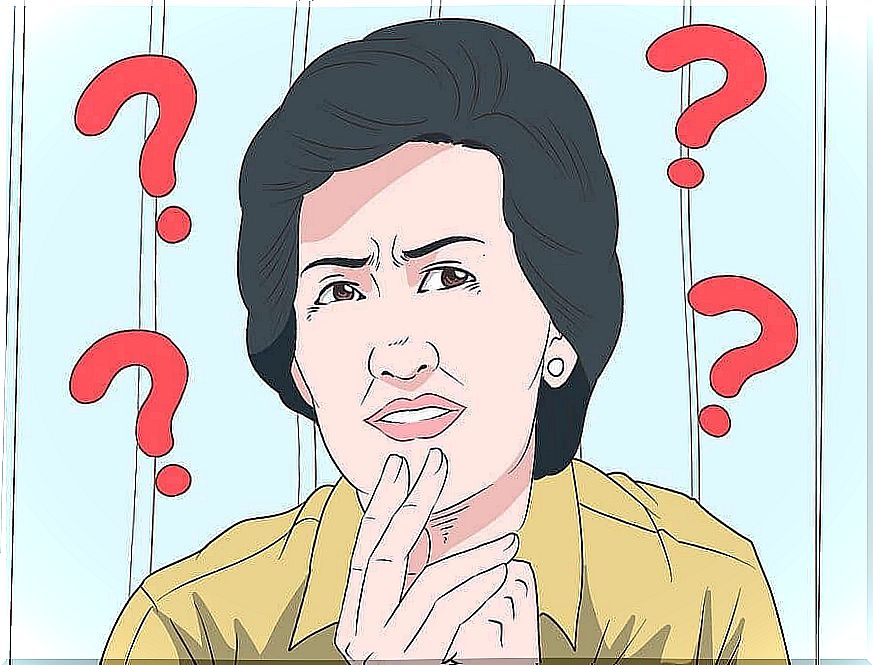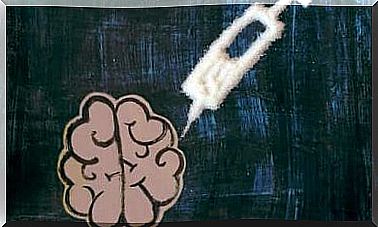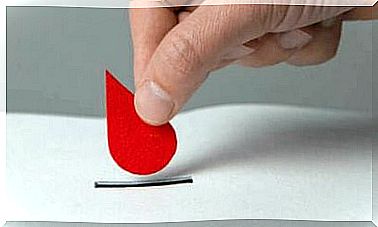How To Detect The Onset Of Alzheimer’s?
Find out in this article how to detect the onset of Alzheimer’s. This information will be of great help if you need to see your doctor.

The Alzheimer’s disease usually affects adults of advanced age. It is therefore normal to ask the following question: Is it possible to detect the onset of Alzheimer’s?
How do we know when to see a doctor if we are concerned about the health of a close relative?
It should be remembered that Alzheimer’s disease produces a degeneration of brain cells and at the same time a decrease in the mass of this organ. Therefore, this disease causes memory loss and directly affects the behavior of people who suffer from it but also their relationships with others.
It is very important to make a diagnosis on time, because Alzheimer’s disease cannot be cured. Doctors can only prescribe certain drugs to control the progression of Alzheimer’s disease and relieve some of the associated symptoms.
Detecting an onset of Alzheimer’s: Is it possible?
Numerous studies have been carried out to discover the onset of this disease early. However, no concrete method has really been proven. Alzheimer’s disease shows very few symptoms.
If these symptoms are recurrent, that is, they occur at the same time or in the same period, it is recommended to go to a specialist immediately. The neurologist will be responsible for confirming or not Alzheimer’s disease and can sometimes control and make its progression less rapid.
Progressive disease
Unfortunately, Alzheimer’s disease gets worse over time. We can identify in its progression certain specific stages. At first, the disease is at a mild stage. During this time, the person may become a little slower.
In colloquial terms, the affected person gradually loses their ability to communicate. She may also lose the thread of a conversation and have difficulty following her own arguments and those of her interlocutor.
On the other hand, the patient with Alzheimer’s disease may lose energy and feel exhausted. In addition to having difficulty learning new concepts or new tasks. These symptoms are not always immediately identified and can be confused with the normal aging process.
What are the symptoms ?
In the early stage of the disease, there are other symptoms that are more characteristic and, therefore, easier to identify.
Immediate memory loss
A recurring symptom in people with Alzheimer’s disease is immediate memory loss. They don’t remember what they said a while ago or they ask the same thing over and over.
They also tend to forget where they left or put things. In contrast, patients with Alzheimer’s disease can remember events that are further back in time.
Loss of sense of space and time
The dates are forgotten and other references are also lost, such as the seasons of the year, for example. Because of this, a person with Alzheimer’s can also easily get lost, for they forget how they got to a certain place or what paths they took.
Complications in reasoning
Problems arise in reasoning or any thought that involves numbers and it is impossible to follow an agenda. Sequential thinking is changed. Therefore, it is very difficult to perform calculations or activities that require following different steps, such as cooking.
Limitations in performing daily tasks
People suffering from Alzheimer’s disease encounter many difficulties in carrying out daily tasks such as bathing, going home, getting around for a work activity, etc.
Mood disorders
Depressive and mood disorders are common and exhibit characteristics of anxiety or irritability. In general, the personality of a patient with Alzheimer’s disease changes gradually.
Confusion of images and objects
Visual field alterations are also very common. There are complications in reading, problems with the distance between objects or in the perception of colors.
Loss of language ability
There are difficulties in articulating words in a coherent way and very often a lot of confusion arises.
A common behavior for people with Alzheimer’s is to interrupt a conversation to try and remember the name of something. In these cases, it takes a huge memory effort and may not pay off.
Criterion and good judgment disappear
A person with Alzheimer’s disease may give money to family or strangers for no reason, or make a mistake in paying. She can also pay for her purchases without waiting for change.
In more advanced stages, the affected person no longer has the capacity to make any decisions . It is very difficult to detect the onset of Alzheimer’s disease. Not all symptoms happen at the same time or in the same way in all people who have it.
The best thing to do is to consult a specialist when symptoms are observed which could be a sign of a possible onset of Alzheimer’s. You must first rule out other diseases and then start appropriate treatment.
Main image © wikiHow.com









